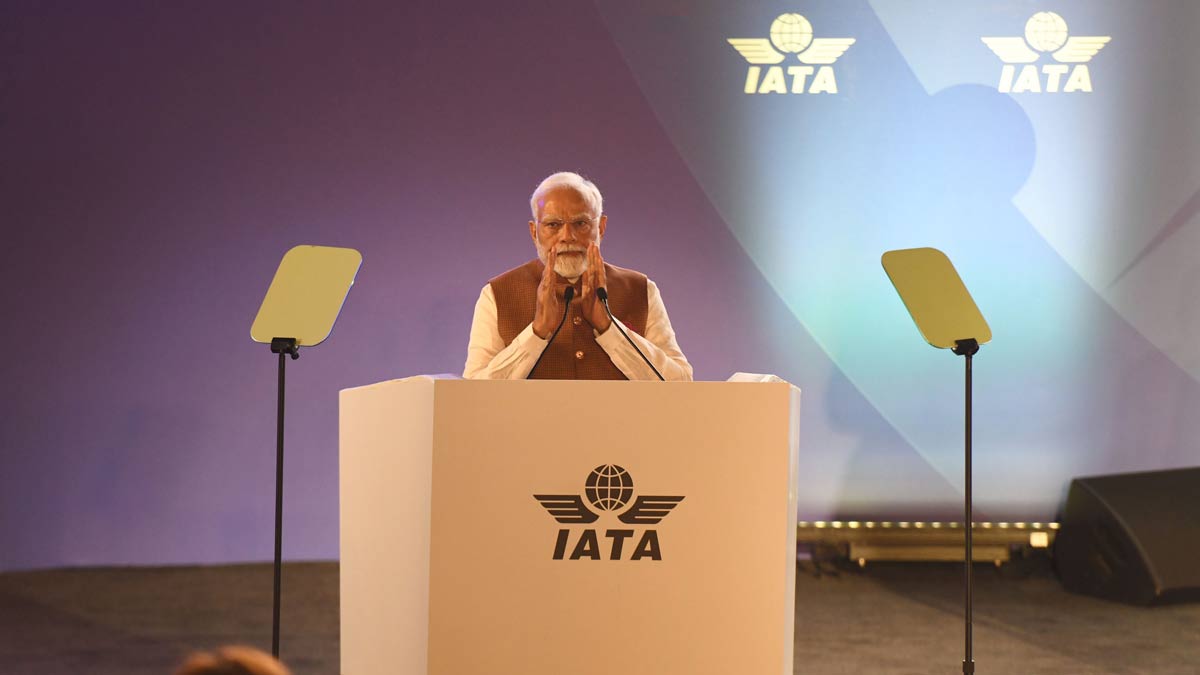
Smarter email, faster business.
Trending
India eyes $4 billion MRO hub status by 2030, PM Modi tells IATA meet

India Aims to Become a $4 Billion MRO Hub by 2030, Prime Minister Modi Announces at IATA Meeting
India has set an ambitious target to establish itself as a $4 billion Maintenance, Repair, and Overhaul (MRO) hub by 2030, Prime Minister Narendra Modi declared at the International Air Transport Association (IATA) conference. This strategic vision seeks to elevate India’s role in the global aviation services sector, attracting significant investment and expertise from leading international companies.
Expanding Aviation Market and Strategic Challenges
India’s rapidly growing aviation market, fueled by increasing passenger traffic and an expanding commercial aircraft fleet, underpins the government’s MRO ambitions. Industry experts highlight that developing a comprehensive MRO ecosystem could generate substantial employment opportunities and reduce the country’s dependence on foreign maintenance facilities.
Nonetheless, India faces considerable obstacles in realizing this goal. Regulatory complexities, including cumbersome approval processes and inconsistent policy frameworks, continue to impede progress. Furthermore, India must contend with well-established MRO hubs such as Singapore and Dubai, which benefit from advanced infrastructure, streamlined regulations, and a highly skilled workforce.
Infrastructure Development and Policy Reforms
Achieving the $4 billion MRO target will require significant investment in infrastructure. Experts emphasize the need to modernize existing facilities, create new MRO clusters, and ensure the availability of technicians trained to meet international standards. While the government has introduced reforms aimed at attracting foreign investment and simplifying business operations, concerns remain regarding protectionist policies that could discourage global participation.
Market responses to India’s MRO aspirations have been varied. Some international aviation firms have shown interest in expanding their operations within India, while others remain cautious. Emirates, one of the world’s largest airlines, has expressed reservations, warning that India’s restrictive bilateral air service agreements may impede its development as a global aviation hub. Industry analysts suggest that such policies could limit international traffic and investment flows, potentially undermining India’s competitiveness against regional rivals.
Regional Competition and Government Optimism
Neighboring aviation centers, particularly Singapore and Dubai, are closely observing India’s initiatives and are expected to intensify efforts to maintain their dominance by offering new incentives and expanding their capabilities.
Despite these challenges, the Indian government remains optimistic about the country’s potential. Prime Minister Modi underscored India’s skilled workforce and strategic geographic location as key advantages. He urged industry stakeholders to collaborate in building a world-class MRO ecosystem capable of serving both domestic and international carriers.
As India pursues its goal of becoming a $4 billion MRO hub by 2030, the effectiveness of policy reforms, infrastructure enhancements, and international partnerships will be critical in overcoming existing barriers and establishing the country as a formidable player in the global aviation maintenance market.